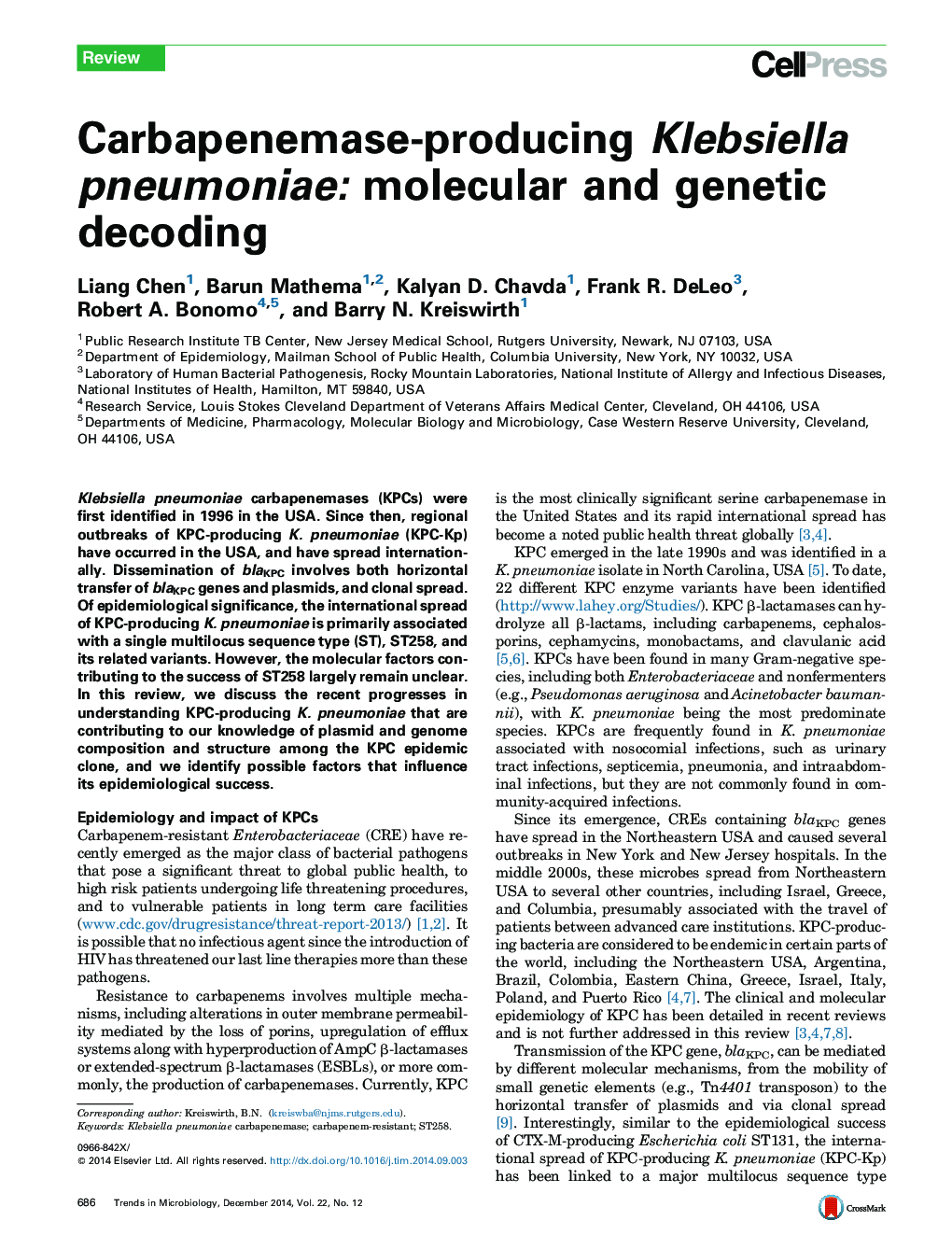| Article ID | Journal | Published Year | Pages | File Type |
|---|---|---|---|---|
| 3422029 | Trends in Microbiology | 2014 | 11 Pages |
•Active spread of Klebsiella pneumoniae carbapenemases (KPCs) occurs through transposons, plasmids, and epidemic clones.•Certain KPC-producing epidemic clones have spread globally.•Numerous factors are responsible for the spread and success of epidemic KPC clones.
Klebsiella pneumoniae carbapenemases (KPCs) were first identified in 1996 in the USA. Since then, regional outbreaks of KPC-producing K. pneumoniae (KPC-Kp) have occurred in the USA, and have spread internationally. Dissemination of blaKPC involves both horizontal transfer of blaKPC genes and plasmids, and clonal spread. Of epidemiological significance, the international spread of KPC-producing K. pneumoniae is primarily associated with a single multilocus sequence type (ST), ST258, and its related variants. However, the molecular factors contributing to the success of ST258 largely remain unclear. In this review, we discuss the recent progresses in understanding KPC-producing K. pneumoniae that are contributing to our knowledge of plasmid and genome composition and structure among the KPC epidemic clone, and we identify possible factors that influence its epidemiological success.
